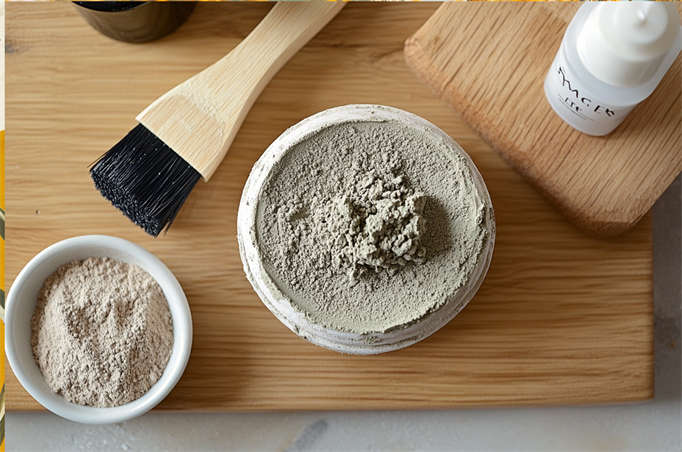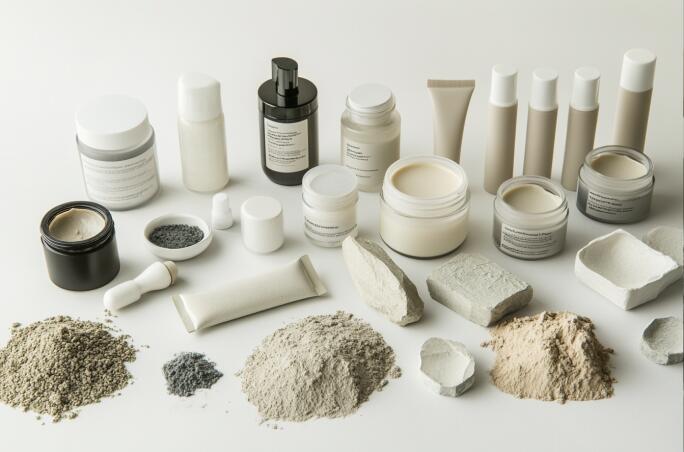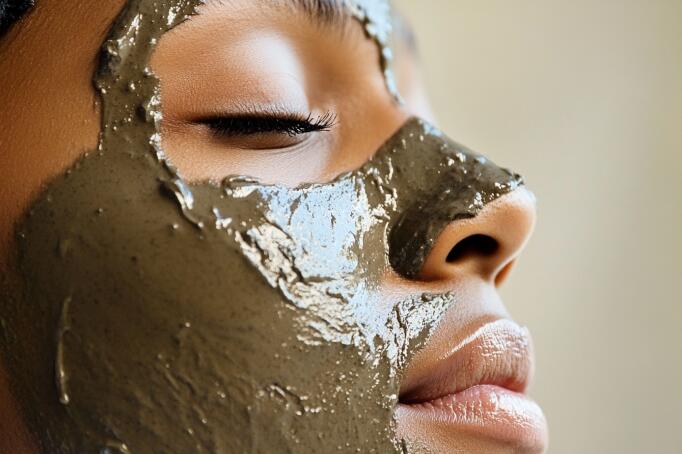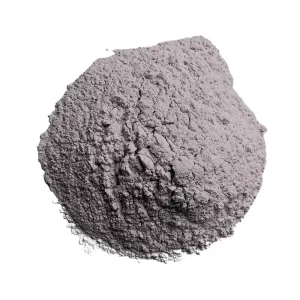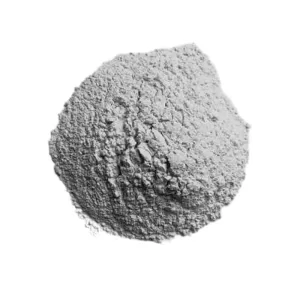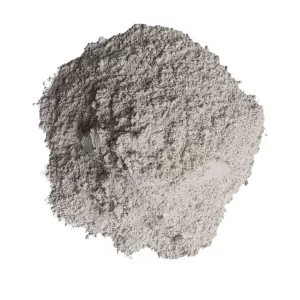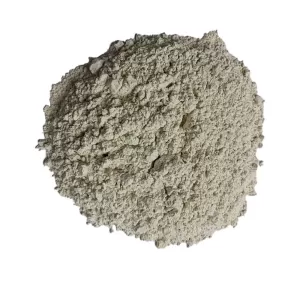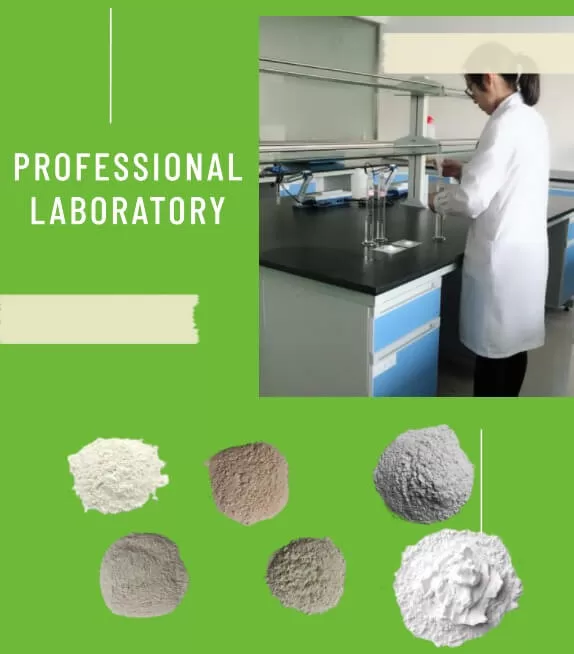Bentonite is a natural mineral with superior adsorptive, moisturizing, and thixotropic properties and is widely used in personal care and household chemicals. As a cost-effective, environmentally friendly, and versatile ingredient, bentonite is commonly found in commodities such as face masks, cleansing products, toothpaste, and shampoo. Its main benefits are seen in face cleansing, moisturizing, and antimicrobial effects, which both consumers and bentonite clay manufacturers highly appreciate. This article will delve into the efficacy and benefits of bentonite in personal care products and the latest research findings and development prospects in the household chemicals industry.
What are the benefits of bentonite in personal care products?
Bentonite has many advantages in personal care products; some of the main benefits are listed below:
Adsorption properties: bentonite has excellent adsorption properties and can effectively adsorb the skin surface oil and impurities to help clean the skin.
Cleansing: Bentonite Clay penetrates deep into the skin’s pores and removes deep-seated dirt and residue, helping to enhance the cleanliness of the skin.
Water locking effect: Bentonite clay has excellent water retention ability, can help the skin maintain moisture, and reduces dry and tight feeling.
Material to improve skin texture: Bentonite Clay can promote the metabolism of skin cells and help remove dead skin cells, thus making the skin smoother and more delicate.
Antibacterial: Bentonite Clay has specific antibacterial properties that can help reduce bacteria on the skin, thus preventing acne and other skin problems.
Stability: In cosmetic formulations, bentonite clay is used as a thickener to enhance the product’s strength and extend its shelf life.
Thixotropy: Bentonite Clay enhances the thixotropy of a product, resulting in a smoother application and easier distribution.
Reduced Irritation: Bentonite Clay reduces skin irritation from other ingredients, especially for sensitive skin.
Reduced costs: Bentonite is a cost-effective ingredient that can control expenses while maintaining product quality.
Low carbon and environmental protection: bentonite is a natural mineral that helps to reduce carbon emissions and meet the needs of modern users of environmentally friendly products.
Multifunctionality: Bentonite can be used as a mask, cleansing product, shampoo, conditioner, and other care products, with a wide range of applications.
Enhancement of product texture: Bentonite clay enhances the consistency and feel of products, thus improving the consumer experience.
This advantage makes bentonite clay one of the most popular ingredients in personal care products.
Bentonite in personal care products
Bentonite is used in a wide range of personal care products; here are some specific examples of its use:
Toothpaste: bentonite gum can be used as a component of toothpaste to enhance the consistency of toothpaste and improve the feel while having the healthcare role of adsorption of oral bacteria to enhance the Efficiency of toothpaste production.
Mask: bentonite clay in the монтмориллонит component has moisturizing, skin cleaning, adsorption, and other functions. Adding it to face masks can effectively absorb excess oil on the face and remove bacteria on the skin surface while improving the mask’s consistency and promoting a good emulsification effect.
Face wash products: Due to its unique reticular structure, bentonite clay has the properties of ion exchange, moisture adsorption, moisturizing, and facial cleansing, which can effectively remove and adsorb residual cosmetics and dirt in the texture of the skin, absorb excess oil and promotes the shedding of cells in the stratum corneum, which is a high-quality ingredient in face wash products.
Hydrating cream: Bentonite’s unique reticular structure can convert a large amount of free water into bound water, thus increasing the viscosity of the product, making it an ideal emulsion thickener in cosmetics.
Concealer products: Bentonite Clay is also used in concealer products. Although the exact effect is not detailed, it can be surmised that it is related to its adsorptive and thixotropic-enhancing properties.
Heavy oil detergents or mud detergents: Modified bentonite has excellent detergency, which can reduce the amount of surfactants and other additives, thus improving the reliability and quality of the product and achieving the purpose of cost control.
Inorganic fabric softener: bentonite plays a vital role in washing products; it can adsorb ions and other impurities, thus preventing the formation of material deposits on the surface of the fabric so that the fabric is softer to improve the cleaning effect, but also to help control costs.
Shampoo: The shampoo added after modification and purification of high-quality bentonite can improve the texture and consistency of the shampoo, enhance the cleaning effect, and have the double function of cleaning and protection. Bentonite clay also neutralizes calcium salts and prevents calcium from being deposited on the hair, thus reducing dandruff and allowing for smoother combing.
Can Bentonite Clay cause skin irritation?
Bentonite clay is a common ingredient in skin care products, is often considered safe, and has many benefits. However, like all ingredients, bentonite clay can cause allergic reactions in some people. Here is some information on whether bentonite clay can trigger an allergic skin reaction:
SKIN TESTING RECOMMENDATION: Skin testing is recommended before using all bentonite clay products. You can apply a small amount of the product to the inside of your elbow and wait 24 hours. If there is no adverse reaction, you may continue to use the product.
SAFETY ASSESSMENT: According to the safety assessment report for the cosmetic ingredient Quaternium-18 Bentonite Clay, the ingredient does not pose a hazard to human health within the limits of normal, reasonable, and foreseeable use.
Risk substance assessment: In the safety assessment, quaternion-18 bentonite may not be considered a risk substance. Based on current scientific understanding, ingredients routinely used in skin care products are generally regarded as safe.
Individual differences in allergic reactions: Although bentonite clay is generally considered safe, everyone has different skin sensitivities, and some people may have allergic reactions to bentonite clay or its combination with other ingredients.
Lead content warning: the FDA cautions consumers to avoid certain types of bentonite clay because of their high lead content, which may trigger side effects.
In general, bentonite clay is relatively safe for personal care products, but each individual’s skin reaction may vary. For this reason, skin testing is recommended before suggesting products containing bentonite clay. It is also essential to be concerned about other ingredients in the product as these may also cause allergic reactions. If you have any concerns or known sensitivities to bentonite clay, it is best to consult a doctor or dermatologist before use.
What specific roles does bentonite play in cosmetics?
The leading roles of bentonite in cosmetics include:
Improving thixotropy and viscosity: Adding Bentonite Clay to shampoos can change the thixotropy and viscosity of the product, thus significantly enhancing the cleansing effect and providing both cleansing and protective functions.
Regulating effect: In the Process of shampooing, bentonite clay can lower the viscosity of the shampoo and reduce the fluidity to play a specific protective effect on the eyes to help prevent them from experiencing too much Fatigue.
Neutralization of calcium salts: Bentonite clay neutralizes calcium salts and prevents calcium deposits from sticking to the hair.
Detoxifying effect: Bentonite clay is effective against chronic dermatitis and itchy skin, reduces dandruff, and improves combing.
Enhance product quality: Due to the bentonite clay skeptic gum having a reticular structure, this structure in the shampoo can effectively achieve good suspension and dispersion effect, thus enhancing the overall quality of the product.
As a binder: Bentonite inorganic gel is used as a non-toxic binder in toothpaste. It has thickening and wetting properties and is used primarily as an abrasive in toothpaste.
Enhancing the stability of emulsions: Bentonite’s unique reticulated structure converts large amounts of free water into bound water, thereby increasing viscosity and making it an ideal viscosity builder in cosmetics.
Flawless and de-yellowing whitening: Bentonite white carbon black is a kind of hydrated silica, which is widely used in sunscreens, foundations, skin creams, and isolation and concealer products, and it has excellent covering and de-yellowing whitening effects.
Adsorbent and filler material: Bentonite clay, as a high-quality adsorbent and filler material in face masks, can effectively adsorb organic matter on the carrier, preventing the build-up of suspended particles, and also has a stabilizing emulsifying effect.
Supplementary nutrients: bentonite clay can provide nutrients for the skin but also effectively help companies control costs.
This function makes bentonite a versatile and desirable ingredient in cosmetics.
What is the progress of research on bentonite in household chemicals?
The latest research findings on bentonite in the household chemicals industry include the following:
The state of use in skin care products:
Bentonite has become an indispensable ingredient in cosmetics and an ideal raw material for the development of natural products due to its excellent decontamination, detoxification, soothing, and whitening properties, as well as good hygroscopicity, water-absorbent swelling, buoyancy, dispersibility, stability, thixotropy, water permeability, thickening effect, and non-toxicity.
Bentonite in shampoo can regulate the thixotropy and viscosity of the product and enhance the cleaning effect, simultaneously with the double impact of cleaning and protection.
Bentonite inorganic gel is used as a binder for toothpaste. Its non-toxic, thickening, and wetting properties make it mainly used as an abrasive component of toothpaste.
In emollients, bentonite has a unique reticular structure that converts large amounts of free water into bound water, thereby increasing viscosity, which makes it an ideal thickener in cosmetics.
Bentonite white carbon black is a hydrated silica commonly used in sunscreens, foundations, skin creams, and barrier concealer products to cover blemishes effectively, brighten skin tone, and whiten skin with good results.
Adsorbent application research:
The research results of bentonite as an adsorbent include the study of the adsorption properties of TiCl4-modified sodium bentonite prepared by cationic intercalation for uranium (UU (VI)) and thorium (Th (IV)) and the analysis of the effectiveness of iron and titanium-modified sodium bentonite in removing thorium (Th (IV)) from solution.
In this paper, the adsorption properties of acid-modified bentonite on heavy metal ions were investigated, and it was found that different types of acids had a significant effect on the microstructure of bentonite and the adsorption properties of heavy metals after acid treatment.
Research progress of organic bentonite:
The research progress of organic bentonite includes the selection of bentonite modified with cetylpyridinium chloride and cetyltrimethylammonium bromide, the determination of the applicable standards for organically modified bentonite, and the exploration of its effect on the adsorption properties of phenol.
Organic bentonite can be applied in cosmetics, including hair care oil, lipstick, and eye cosmetics.
Market Demand and Development Prospects:
Based on an in-depth study of the proposed strategy, the size of the skin care grade bentonite market in China is expected to reach a certain standard by 2030, which suggests that there are promising prospects for the development of bentonite in the field of daily cosmetics.
This study shows that bentonite has multiple uses in the everyday chemical industry, and its potential for use grows. With the progress of science and Technology and the growth of consumer demand for natural health products, bentonite in the field of cosmetics application, development, and design will be increasingly improved, showing broad development prospects.
Bentonite usually has various excellent properties and thus shows great potential for application in the daily chemical industry. As an adsorbent for facial cleansing or viscosity builder for improving product adhesion, bentonite shows unique advantages. As consumer demand for natural and healthy skincare products grows, bentonite has a promising future in the personal care and skincare market.



